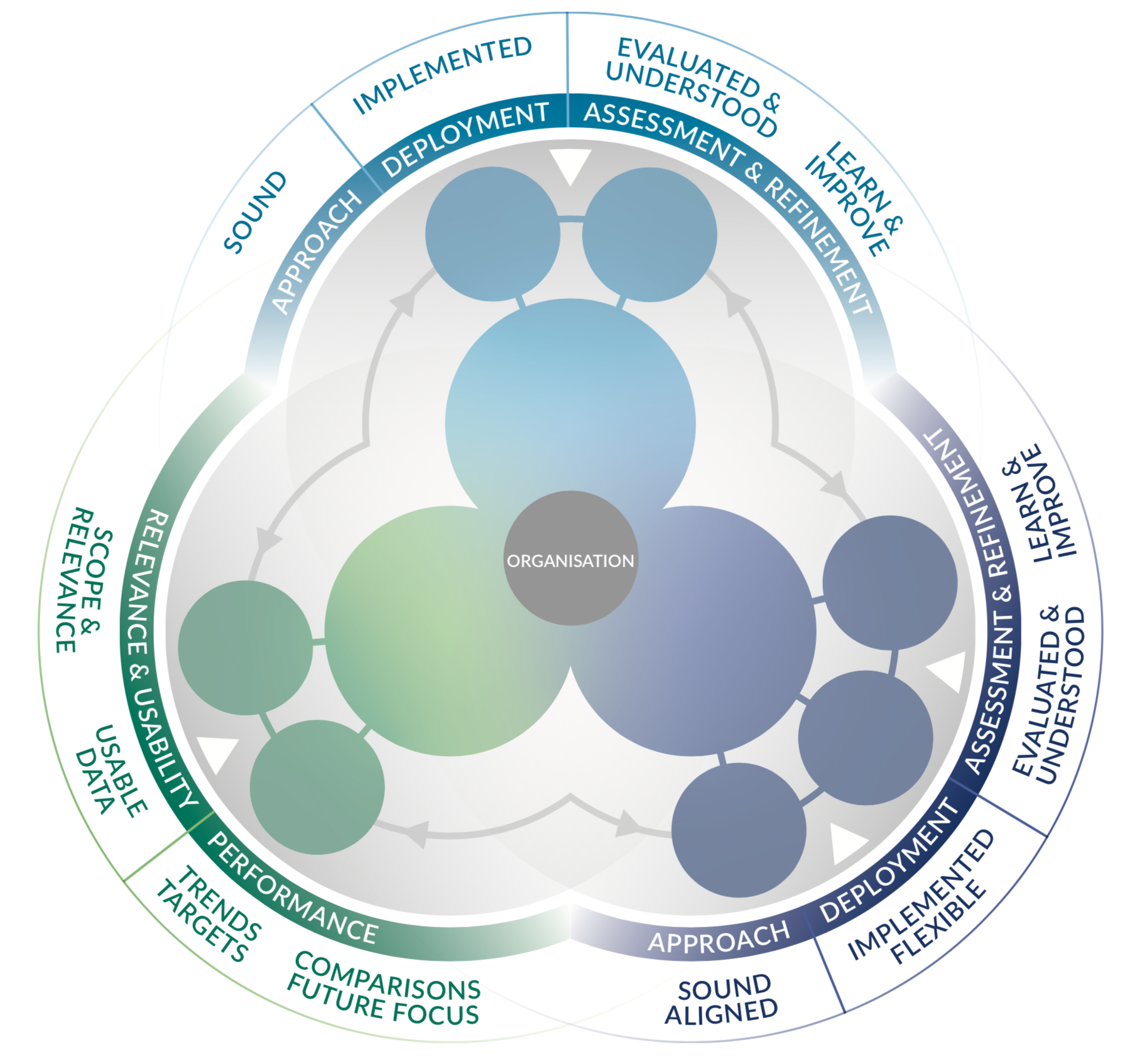EFQM Diagnostic Tool: RADAR
RADAR is the acronym that EFQM uses to describe the logic behind the diagnostic tool it has developed to help any organisation:
• Better manage its current way of working
• Diagnose its current strengths and opportunities for improvement.
At its highest level, the RADAR logic states that an organisation needs to:
• Determine the Results it is aiming to achieve as part of its strategy
• Have in place a number of Approaches that will deliver the required results, both now and in the future
• Deploy these approaxhes appropriately
Assess and Refine the deployed approaches to learn and improve.To help deliver a more robust analysis, the RADAR elements are broken down into a number of Attributes and with each Attribute there is an associated description that expands upon what is meant and what the organisation should be able to clearly demonstrate.
• Better manage its current way of working
• Diagnose its current strengths and opportunities for improvement.
At its highest level, the RADAR logic states that an organisation needs to:
• Determine the Results it is aiming to achieve as part of its strategy
• Have in place a number of Approaches that will deliver the required results, both now and in the future
• Deploy these approaxhes appropriately
Assess and Refine the deployed approaches to learn and improve.To help deliver a more robust analysis, the RADAR elements are broken down into a number of Attributes and with each Attribute there is an associated description that expands upon what is meant and what the organisation should be able to clearly demonstrate.
An individual or a team can use the RADAR logic at the Attribute level, in conjunction with the EFQM Model:
• to help identify where an organisation’s current strengths and opportunities for improvement exist
• to help an organisation describe its future in terms of the desired results and the necessary actions that need to be taken to achieve those desired results.


